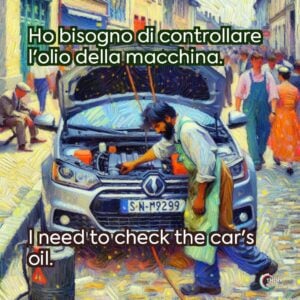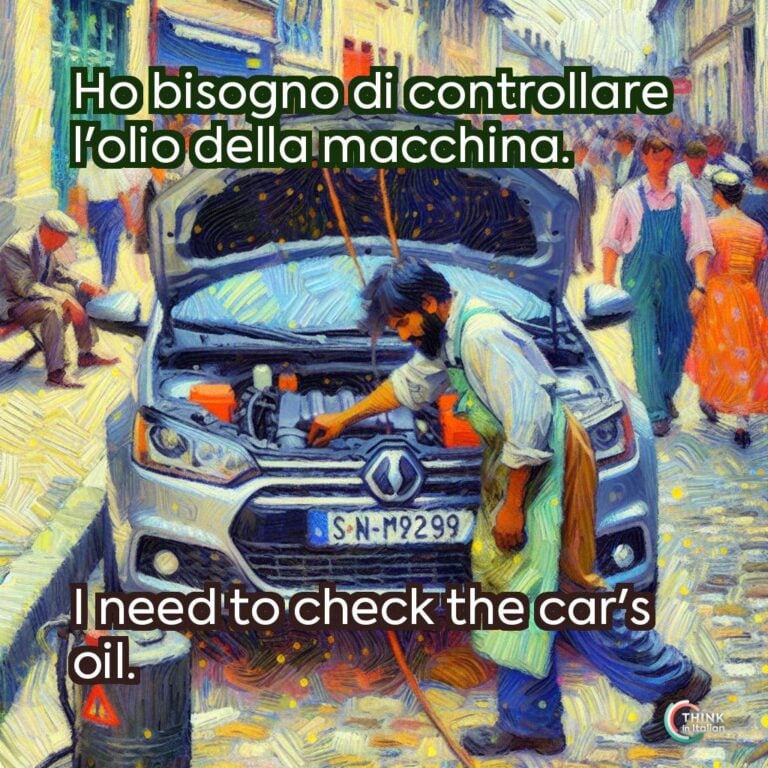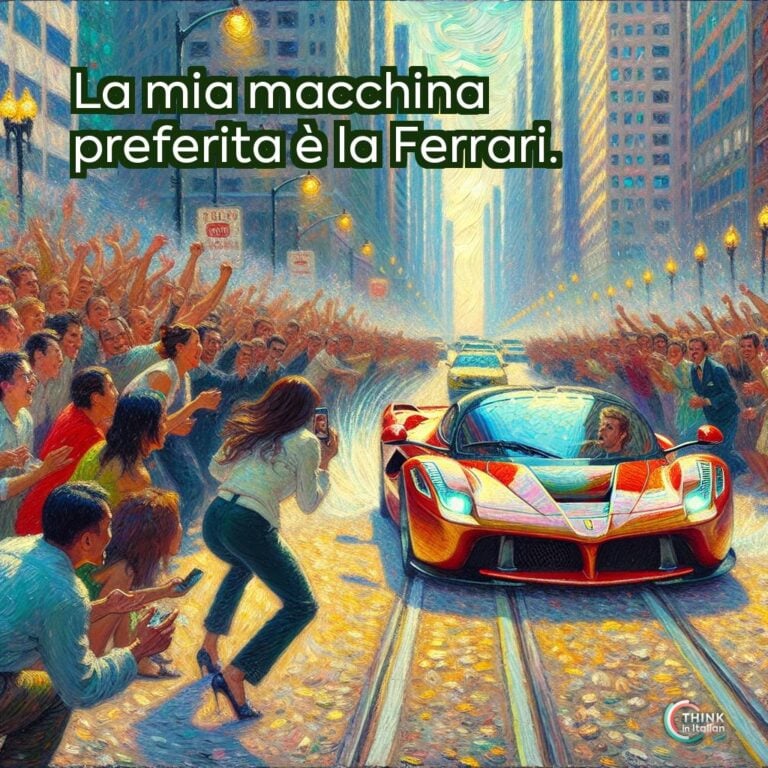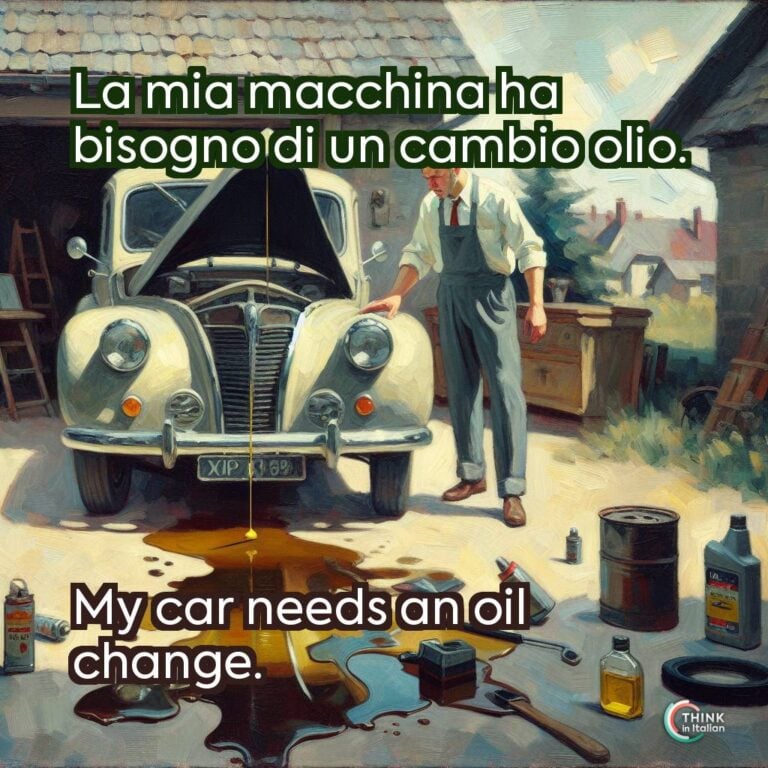Car-Related Vocabulary in Italian
How to Say “Car” in Italian
Although it might seem straightforward, the word for “car” in Italian varies depending on the context. However, the most common terms are macchina and auto, which is an abbreviation for automobile.
Learn more about Italian means of transportation!
I strongly believe that macchina is the word most Italians use in everyday life. It’s versatile and can be used in both formal and informal settings. For example:
Sei andato a lavare la macchina?
Did you go wash the car?
Il cinema più vicino è a soli dieci minuti di macchina da qui.
The nearest cinema is just 10 minutes by car from here.
Auto sounds a bit more formal, at least to me, while automobile definitely belongs to official documents, advertisements, or news reports:
Le automobili elettriche stanno diventando sempre più popolari in Italia.
Electric cars are becoming increasingly popular in Italy.
Voglio comprare un’auto nuova.
I want to buy a new car.
Other more bureaucratic terms to say car in Italian are veicolo (vehicle), autoveicolo, and autovettura (motorized vehicles with four or more wheels).
These terms are mostly used in traffic reports or legal contexts, and rarely in casual conversations. However, it is helpful to know for traffic news or official documents.
Inside the Car: Vocabulary for Interior Parts
Here I will list the essential vocabulary to describe a car’s interior:
- Volante (steering wheel)
Tieni le mani sul volante.
Keep your hands on the steering wheel.
- Sedile (seat)
Il sedile è comodo.
The seat is comfortable.
- Cintura di sicurezza (seatbelt)
Allaccia la cintura di sicurezza.
Fasten your seatbelt.
- Cruscotto (dashboard)
Il cruscotto è sporco.
The dashboard is dirty.
- Cambio (gearshift)
Non so usare il cambio manuale.
I don’t know how to use a manual gearshift.
On the Road: Vocabulary for Exterior Parts
- Parabrezza (windshield)
Il parabrezza è scheggiato.
The windshield is chipped.
- Faro (headlight)
Accendi i fari, sta diventando buio.
Turn on the headlights, it’s getting dark.
- Specchietto retrovisore (rearview mirror)
Lo specchietto retrovisore è rotto.
The rearview mirror is broken.
- Ruota (wheel)
Ho bisogno di cambiare una ruota.
I need to change a wheel.
- Bagagliaio (trunk)
Metti le valigie nel bagagliaio.
Put the suitcases in the trunk.
At the Mechanic: Maintenance Vocabulary
When you experience car trouble, these terms can help:
- Motore (engine)
Il motore non parte.
The engine won’t start.
- Olio (oil)
Devo controllare l’olio.
I need to check the oil.
- Pneumatico (tire)
Lo pneumatico è bucato.
The tire is flat.
- Freni (brakes)
I freni fanno rumore.
The brakes are making noise.
- Batteria (battery)
La batteria è scarica.
The battery is dead.
Common Road Signs
If you’re driving in Italy, these terms and road signs will be especially useful:
- Parcheggio (parking)
- Autostrada (highway)
- Area di servizio (service station)
- Benzinaio (gas station)
- Casello (toll booth)
- Divieto di sosta (parking forbidden)
- Uscita (exit)
- Lavori in corso (roadwork)
- Pericolo (danger)
Emergency Phrases
Hopefully you will never need Italian vocabulary for emergencies, but as we would say: meglio prevenire che curare (better safe than sorry).
La macchina non parte.
The car won’t start.
Ho bisogno di un meccanico.
I need a mechanic.
Dov’è il distributore di benzina più vicino?
Where is the nearest gas station?
C’è un problema con i freni.
There’s a problem with the brakes.
Speed up Your Italian Learning Process
After years living abroad, I noticed that cars in Italy hold particular importance. They’re a symbol of freedom, status, and craftsmanship. This is also because most of the famous brands are Italian, like Ferrari, Lamborghini, and Fiat.
Therefore, learning car-related words in Italian not only improves your practical language skills but also deepens your connection to Italian culture.
So, buckle up, practice your Italian car terms, and buon viaggio!






